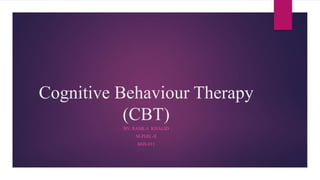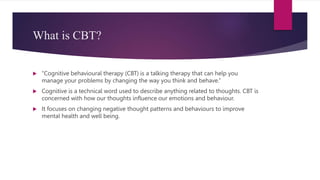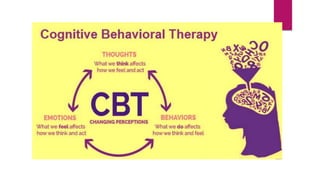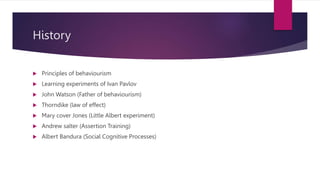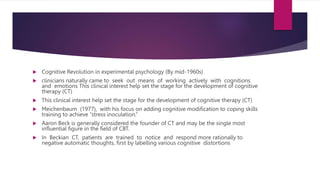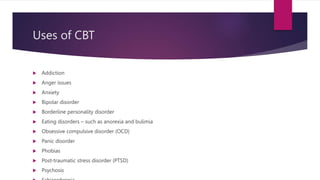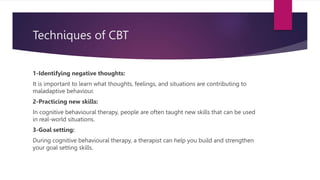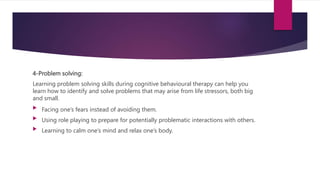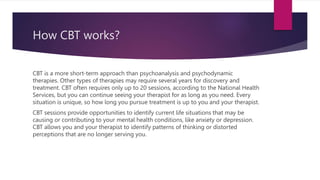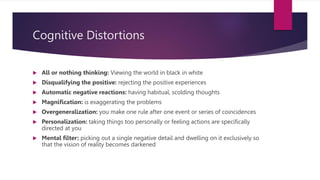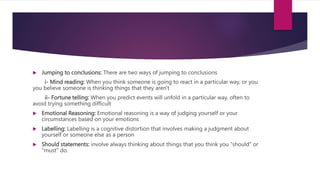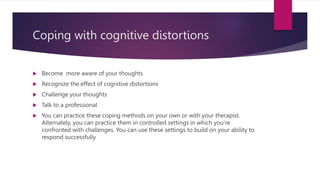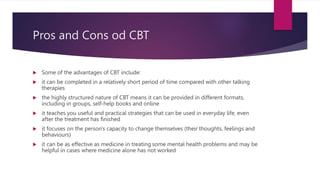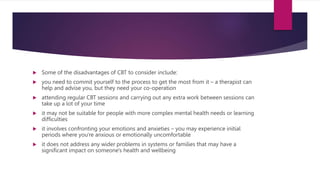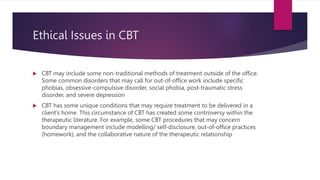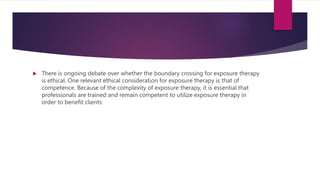Cognitive behavioural therapy (CBT) is a talking therapy that focuses on changing negative thought and behaviour patterns to improve mental health. It was developed from principles of behaviourism and cognitive psychology. CBT is used to treat many conditions like depression, anxiety, addiction, eating disorders, and trauma. Therapists help clients identify distortions in thinking and set goals to practice new coping skills. Sessions involve challenging unhelpful thoughts and confronting fears through techniques like role playing. While effective in the short-term, CBT may not be suitable for all clients and its out-of-office practices raise some ethical issues regarding boundaries and competence.
